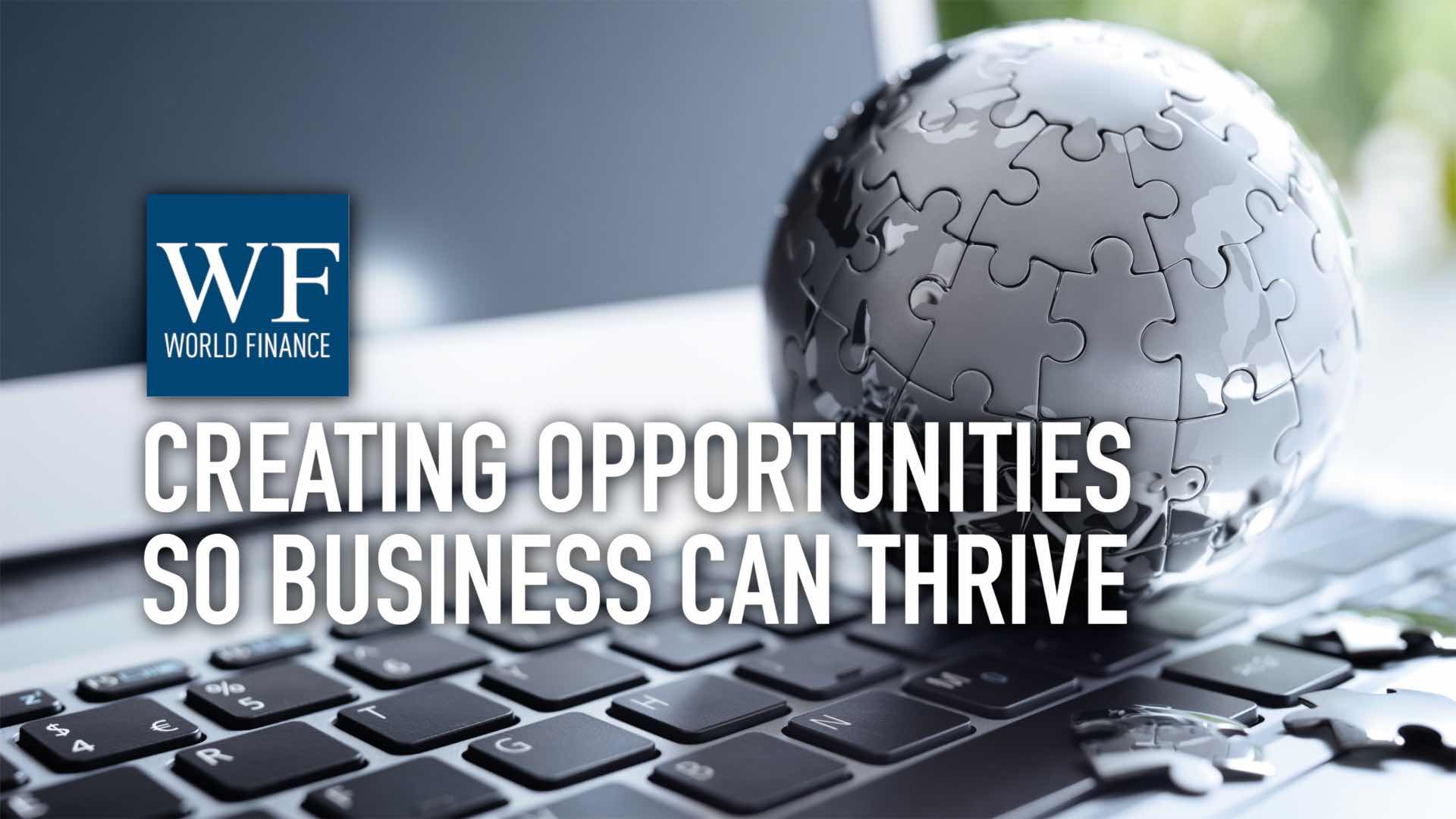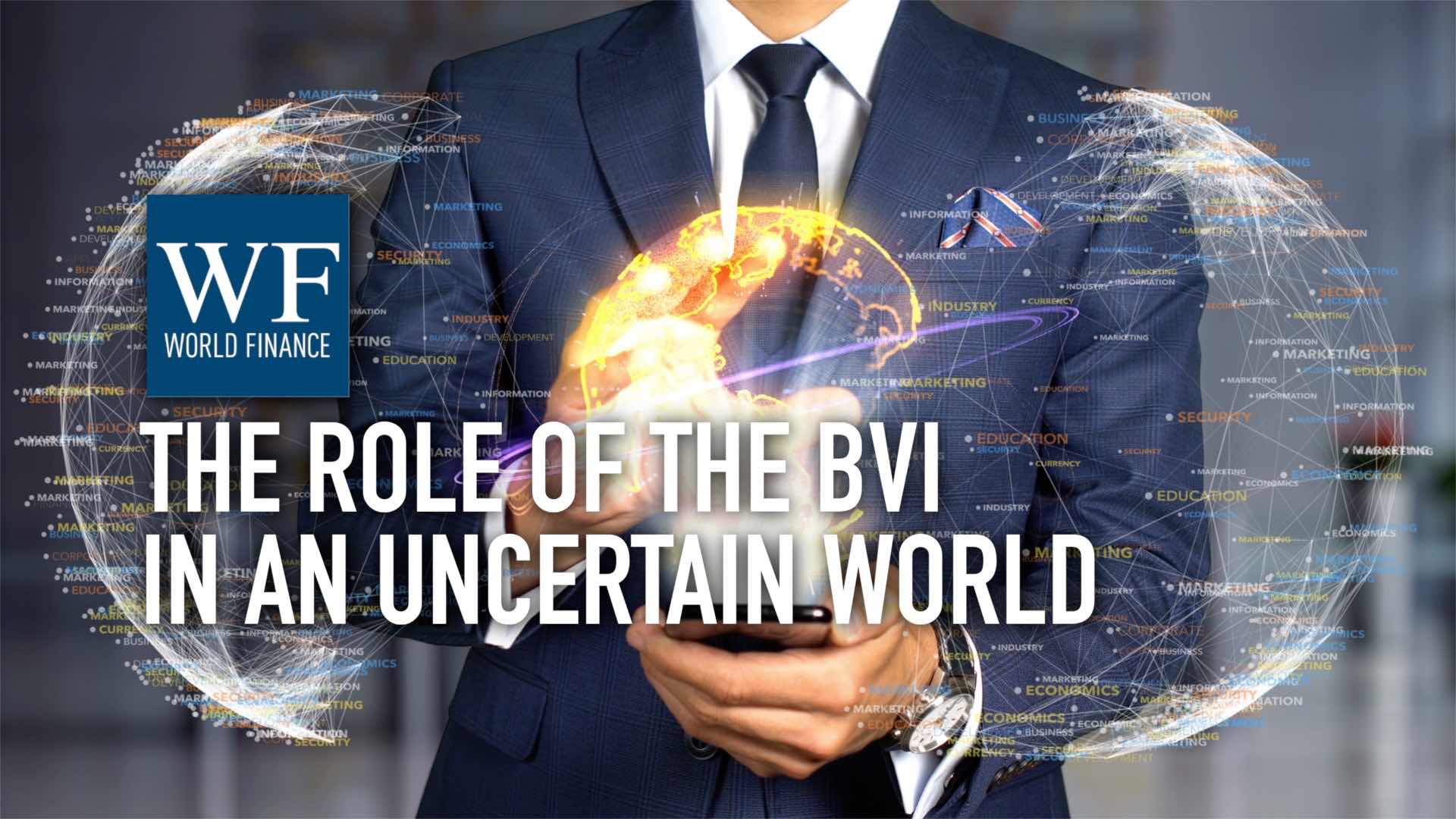How the British Virgin Islands creates value for the world’s economies
BVI mediated finance contributes $1.5trn to the global economy, explains Simon Gray
Related:
Transcript
International finance centres galvanised $1.6trn in additional finance to developing countries between 2007 and 2014. According to a January 2019 report by the Overseas Development Institute, IFCs also helped boost developing economies’ tax revenues by $100bn. Simon Gray from BVI Finance discusses the role that the British Virgin Islands plays in supporting developing economies and facilitating international trade and investment. In the other half of this interview Simon talks about how life and business on the BVI has bounced back since Hurricane Irma struck 18 months ago.
World Finance: Simon, tell me about the role that the BVI plays in supporting developing economies.
Simon Gray: International financial centres play an absolutely integral role in helping support developing countries with developmental finance.
Perhaps the most significant way in which they do that is by producing a facility to allow international investors – be they private or institutional – to pool resources. So you can amalgamate those resources in pool vehicles. They do so also to mitigate risk, by providing a safe rule of law, common law. And also a system of tax neutrality, which is particularly beneficial: rather than trying to trigger all sorts of additional tax liabilities by investing in so many different countries.
World Finance: Now, beyond developing economies, what are the BVI’s strengths today in facilitating international trade and investment?
Simon Gray: Well, they’re myriad. But for example, the ability to generate companies in a very speedy and cost-effective fashion. I think the reason for that is stability, it’s familiarity. And I think in spite of recent events with the hurricane, we didn’t really skip a beat.
We’re very proud of the fact that Capital Economics produced a report entitled Creating Value: What the BVI contributes to the global economy. And that produced some very interesting statistics. For example, overall a figure of $1.5trn is the impact that BVI mediated finance makes to the global economy. Employment-wise it’s estimated that two million jobs are created globally or are linked to BVI mediated finance. So, sometimes we may be small, but we do punch quite big.
World Finance: Now it’s been over a year since full implementation of your BOSS system, that’s your ultimate beneficial ownership secure search system; how’s that going?
Simon Gray: We’re very proud of that system. If you can imagine a very large hotel, there is a common entry point of the lobby, but of course there will be hundreds – and in our case many thousands – of separate rooms. Which are distinct, separate, and secure. And you will have complete privacy within those rooms.
But if there is a valid case from a law enforcement body – for example, within the United Kingdom, the National Crime Agency. If they have an issue – be it a suspected money launderer, or perhaps an evader of tax – they simply have to make a request, and the information will be provided. Often within 24 hours, it can be faster if circumstances demand it.
It’s fully compliant with FATF, it continues to evolve. For example, under the new economic substance requirements we’re making some tweaks. But we’re very proud of it, and I think it could become a model for many other jurisdictions.
World Finance: How else is BVI Finance helping in the international fight against financial crime?
Simon Gray: Well in a number of ways; it’s very important when you’re operating an international financial centre, you have credibility. And that means not only a robust rule of law, but also robust compliance with agreed global, international standards. And back in 2002, we signed up through the OECD to the common reporting standards, which allows the exchange of tax information between jurisdictions. And we are still very active in complying with that.
Separately and a little more recently, we signed up to the OECD’s BEPS initiative. And perhaps the most recent example is late December of last year, where in response to some new requirements from the European Union, we produced the economic substance companies and partnerships act, which we’re pleased to say two weeks ago we were advised we would not be on the list of non-cooperating jurisdictions, sometimes known as the blacklist. And we were pleased with that result.
World Finance: Fantastic; Simon, thank you very much.
Simon Gray: My pleasure.

 BVI Finance CEO: ‘We create opportunities so that businesses can thrive’
BVI Finance CEO: ‘We create opportunities so that businesses can thrive’ ‘Globalisation is changing, and the role of the BVI will be more important than ever’
‘Globalisation is changing, and the role of the BVI will be more important than ever’
